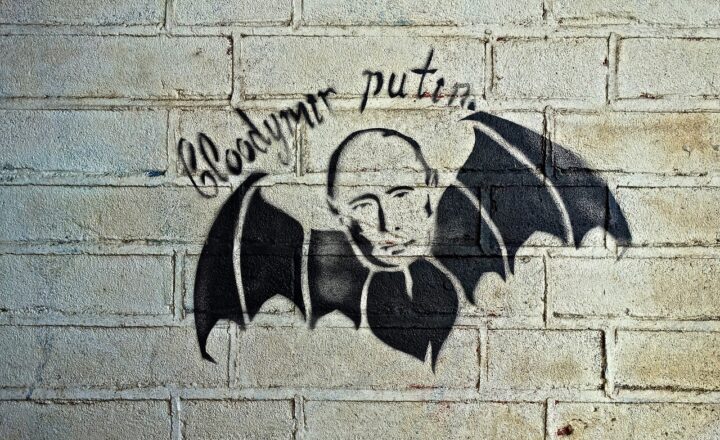How the CIA Shaped Pop Culture with Espionage-Inspired Movies and Shows
November 15, 2024

The Central Intelligence Agency (CIA) has had a profound impact not only on global politics but also on pop culture, particularly through films and television shows centered around espionage. The ways in which these narratives unfold often draw heavily from real-world events, lending a sense of authenticity and drama to these fictionalized accounts. Through this article, we will explore the relationship between the CIA and pop culture, analyzing how the agency has inspired filmmakers and writers, and how these representations have shaped public perception of intelligence work.
1. The CIA’s Role in Hollywood
The relationship between the CIA and Hollywood has been complex and multi-faceted. Since the agency’s inception, it has recognized the power of film and television as tools for shaping public opinion. By collaborating with filmmakers, the CIA has strategically influenced how espionage is portrayed, often with the aim of garnering public support for its covert operations.
One of the most notable instances of this collaboration occurred during the making of the 1962 film “From Russia with Love,” in which the CIA provided technical expertise and even personnel to consult on the film. This not only ensured accuracy in the portrayal of CIA operations but also served to bolster the agency’s image in the eyes of the American public.
Furthermore, the agency has often encouraged the production of films that portray the U.S. as the heroic defender of democracy against hostile foreign powers. In doing so, the CIA has crafted a narrative that reinforces its own purpose and goals across the globe.
2. Iconic Espionage Films and Their Cultural Impact
Films like “The Spy Who Came in from the Cold” (1965), “Three Days of the Condor” (1975), and the Bourne series have captivated audiences with their thrilling plots and behind-the-scenes looks at the life of spies. Each of these films not only entertains but also reflects societal anxieties about the roles and ethics of intelligence work.
**Key Films and Their Themes:**
– **”Dr. No” (1962):** The first James Bond film set the standard for high-octane espionage adventures. Bond, as a British intelligence officer, became an icon, representing glamour, danger, and the thrills of international intrigue.
– **”The Manchurian Candidate” (1962):** A chilling portrayal of paranoia during the Cold War, this film addressed fears of brainwashing and manipulated political agendas, reflecting the tension of the era.
– **”Zero Dark Thirty” (2012):** This film tells the story of the hunt for Osama bin Laden, engaging the audience in both the successes and moral ambiguities of modern intelligence practices.
These films have significantly shaped public perception by normalizing intelligence agencies’ activities while simultaneously questioning their methods. The complex portrayal of spies often raises ethical dilemmas, showcasing not only their bravery and intellect but also the moral compromises they make.
3. Television’s Influence on Espionage Narratives
In addition to films, television has played a crucial role in disseminating narratives about the CIA and espionage. Shows like “The Americans” and “Homeland” have explored the nuances of spy life—balancing personal issues with the demands of their trade.
**Impactful Television Series:**
– **”The Americans” (2013–2018):** This critically acclaimed series follows two Soviet KGB officers posing as an American couple. The show highlights themes of loyalty, deception, and the everyday challenges of maintaining fabricated identities while managing state interests.
– **”Homeland” (2011–2020):** Centering on terrorism and national security, the show has garnered both acclaim and criticism for its representation of the complexities of intelligence operations and the psychological toll on operatives.
Television series have allowed for deeper character development and long-form storytelling, letting audiences engage with the ethical implications of espionage on a personal and political level. They contribute to the narrative that spies are both national heroes and deeply flawed individuals.
4. The CIA and Propaganda: A Double-Edged Sword
Critics argue that the CIA’s influence over pop culture can act as a form of propaganda, promoting a sanitized and romanticized view of the agency’s operations. This, in turn, can downplay the ethical implications of espionage, such as surveillance, deception, and the potential for state-sponsored violence.
Espionage-themed content can glamorize the covert methods employed, leading the public to idealize the spy genre while downplaying real-world complexities. It raises an important question: how do we, as consumers of media, differentiate between entertainment and an accurate representation of intelligence work?
Through careful analysis of the CIA’s involvement in Hollywood, one can uncover a nuanced relationship where public perception is molded by cinematic portrayals, often influenced by the agency’s agenda.
5. The Future of Espionage in Pop Culture
As we progress further into the digital age, the role of the CIA and espionage-themed narratives continue to evolve. With the rise of streaming services and the democratization of content creation, new perspectives on intelligence work are emerging. More diverse voices now have the opportunity to tell stories that challenge traditional narratives and explore the moral ambiguities surrounding espionage.
There is potential for future stories to break the mold. Expect to see narratives focusing on:
– **Cyber Espionage:** With the increasing prevalence of digital warfare, future films and shows may center on hacking, online surveillance, and the evolving threats to national security.
– **Non-Western Perspectives:** An exploration of espionage stories from different cultural viewpoints could provide a more holistic picture of intelligence work, moving beyond the Anglo-centric narratives we’ve become accustomed to.
– **The Psychological Toll of Espionage:** Future content may delve deeper into the emotional and psychological aspects of espionage, addressing the toll it takes on relationships, personal identities, and societal impacts.
Understanding how the CIA has shaped pop culture will be essential for examining both historical contexts and contemporary narratives. Through the lens of film and television, we can explore the interplay between real-world events and the fictionalized portrayals that both entertain and inform.
Conclusion
The CIA’s influence on pop culture, particularly in the realm of espionage films and shows, is both pervasive and compelling. These narratives do more than just entertain; they shape how society views intelligence work and the agencies behind it. As we explore the ongoing relationship between espionage and pop culture, it becomes clear that these stories are as much a reflection of our world as they are a commentary on it.
By examining these portrayals critically, we can gain insight into our own societal fears, aspirations, and the complex nature of the intelligence work that informs global affairs. The intersection of CIA activities and pop culture is a dynamic realm that continues to evolve—encapsulating our fascination with secrecy, adventure, and the eternal battle between good and evil.








